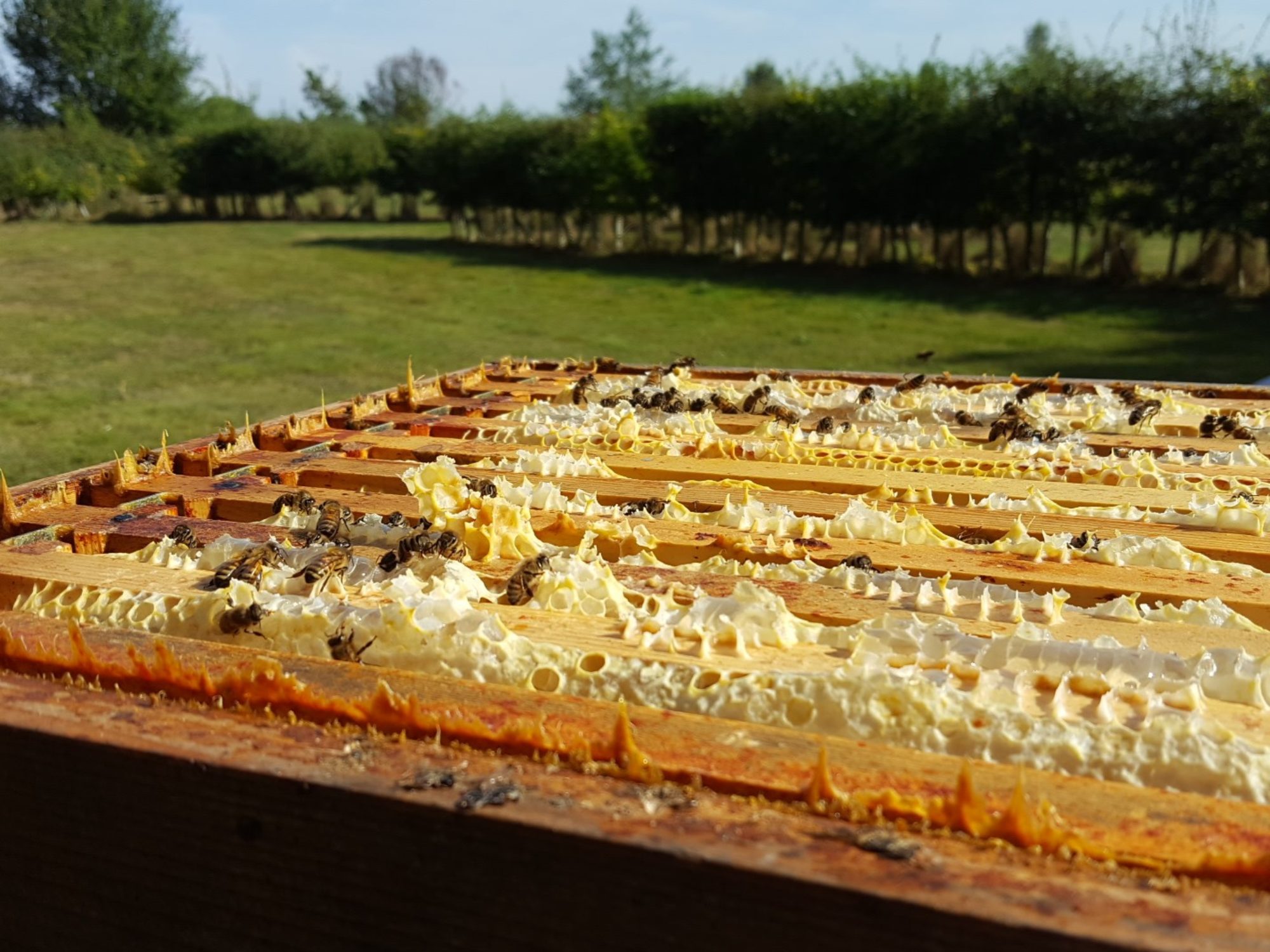http://adventuresinbeeland.com/2015/11/22/tucking-the-bees-in-for-winter
It has taken a while to come, but at last we have proper see-your-breath-in-the-air, see-the-sparkling-frost-in-the-mornings cold. The kind of cold that stops honey bees flying. I walked round the apiary yesterday and the hives could have been abandoned, so quiet were the entrances. Hiding inside – several thousand bees, hundreds of woodlice, a few gigantic spiders and at least one hibernating queen wasp. It is too cold for syrup now, so a slab of fondant has been placed over their crown-boards. Pepper’s girls also have one super, Melissa’s two. Peppermint’s bees were a new split from Pepper’s hive this year and didn’t manage to fill out a super, but they do have plenty of honey in their brood box. Mouse-guards are on, chicken wire to protect against woodpeckers has been placed around the hives and we are using special insulated roofs Tom made for us. Varroa boards left out so that the hives have ventilation from below through the open-mesh floors. I think of it as going into battle, assembling all the weapons we have against the elements and creatures that prey on bees. The bees will do most of the work of course, huddling protectively round their queen as outside the wind howls, the rain lashes and the frost bites. These are a few last details but really preparing the bees for winter goes on all year long. You are always preparing the bees for winter – because the best weapon is having healthy bees to begin with. A combination of luck, the local environment and how well you looked after the bees during the year. It’s things like how clean your equipment is, how recently you replaced your brood combs, how low you kept varroa levels, how much honey you left them, how many times you managed to inspect the colony without squashing the queen or tripping over and dropping boxes of bees everywhere. What was the weather like, were new queens able to mate well, could the foragers fly often, were there good sources of forage around for them to find? If all that went well, then the colony has a good chance of surviving whatever winter can throw at them. Just don’t forget to put your mouse-guard on. What are your beekeeping weapons of choice against winter’s fury?
— gReader
